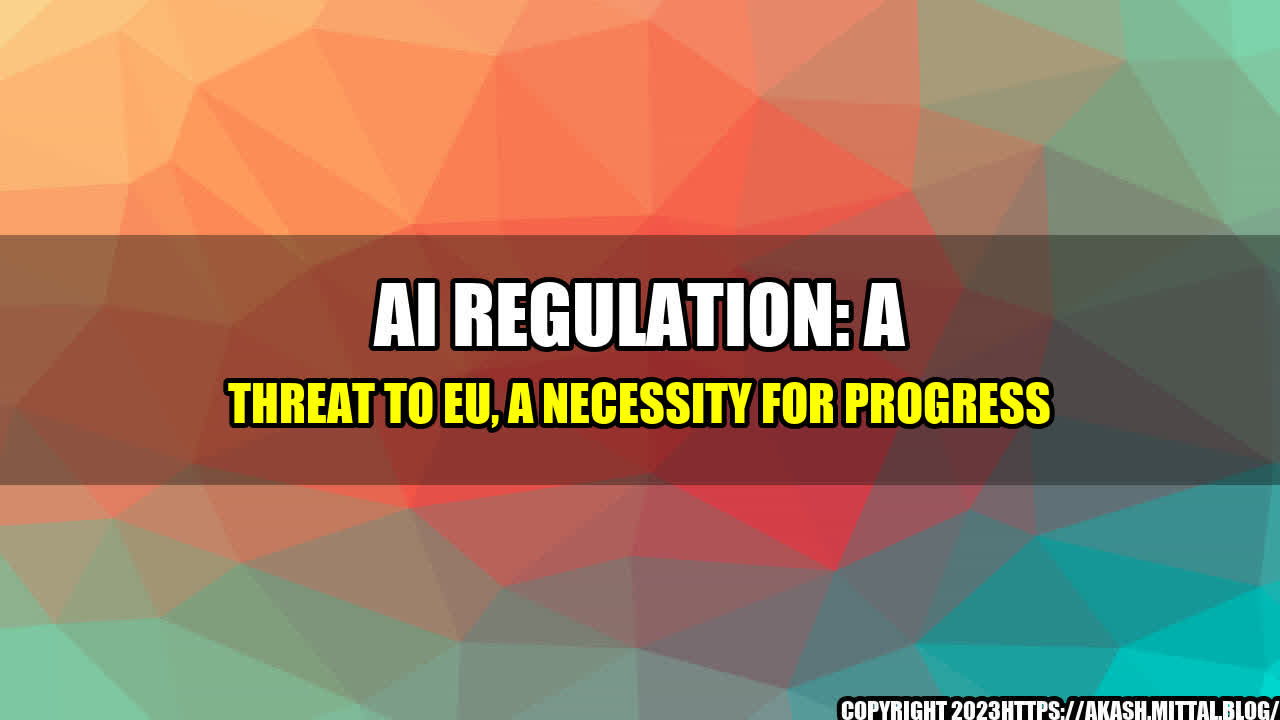AI Regulation: A Threat to EU, A Necessity for Progress

Once upon a time, there was a ChatGPT maker from the European Union who threatened to leave the EU over AI regulation. He believed that the regulations were hindering the progress of AI and limiting innovation. The maker argued that AI regulation was unnecessary and that the industry should be left to self-regulate. However, despite his views, the maker had also requested Congress to regulate AI.
This incident highlights a common trend in the AI industry, where manufacturers often resist the implementation of regulations. They believe that regulations would slow down innovation and limit the potential of AI. However, such resistance often comes at a cost, as the absence of regulations can lead to unethical practices and harm the consumers.
Recent studies have shown that the AI industry is at risk of producing biased and discriminatory algorithms. These algorithms can lead to practices such as racial profiling, gender bias, and discrimination based on economic status. Without regulation, such practices will only continue to grow and become more widespread. This is not just a concern for the consumers but also a threat to the industry's growth and progress.
To further understand the impact of AI, let's consider some quantifiable examples. In 2018, Amazon was forced to abandon a recruiting tool that showed bias against women. The tool showed less interest in resumes that contained the word "women" or indicated membership in women's clubs. Similarly, facial recognition software has been shown to have difficulty recognizing individuals with dark skin, leading to false identifications and wrongful arrests. These examples highlight the need for regulations in the AI industry to prevent such biases.
Moreover, regulation can also promote innovation and progress. When regulations are put in place to safeguard consumer privacy and protect against biases, businesses can focus on developing ethical and beneficial AI technologies. Regulations can also encourage companies to invest in transparency and accountability and ensure that their AI systems are explainable and reliable.
Therefore, instead of threatening to leave the EU over regulations, the ChatGPT maker should recognize the benefits and the necessity of regulation in the AI industry. After all, he himself requested Congress to regulate AI. Without regulations, the industry risks becoming stagnant, unethical, and a danger to society.
Conclusion:
- AI regulation is necessary to prevent bias and discrimination, safeguard consumer privacy, and promote innovation.
- The absence of regulation can lead to unethical and harmful practices that threaten the industry's growth and progress.
- The AI industry can benefit from regulation that encourages ethical practices, transparency, and accountability.
As we move towards an increasingly AI-enabled future, it is critical that we embrace regulation as a means of promoting ethical and beneficial AI technology. By doing so, we can ensure that AI remains a powerful force for progress, rather than a source of harm and discrimination.
Curated by Team Akash.Mittal.Blog
Share on Twitter Share on LinkedIn